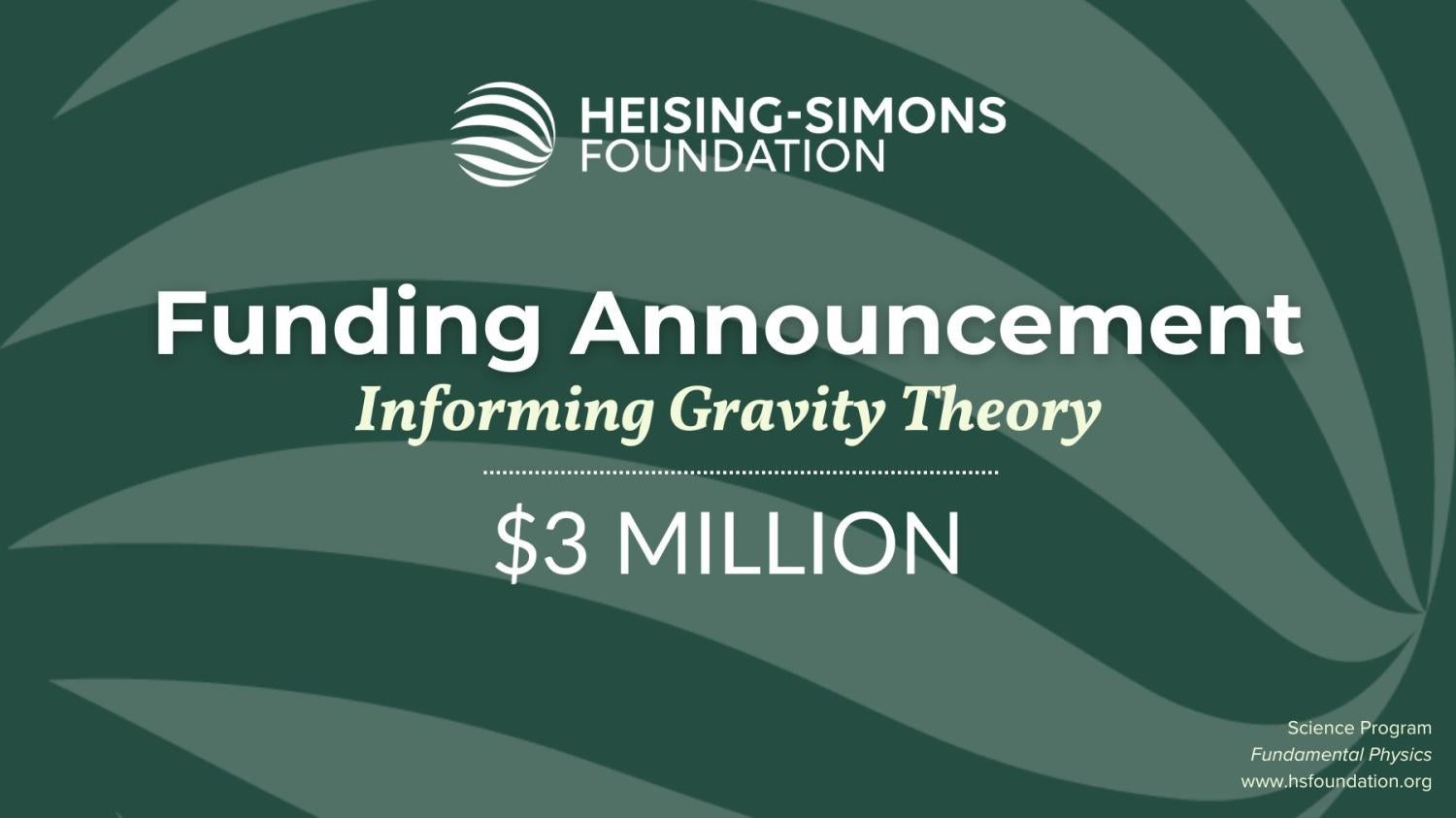CU Boulder physics faculty and JILA fellows awarded Heising-Simons Foundation Grant
The Heising-Simons Foundation recently announced $3 million in multi-institution grants for theoretical and experimental research on Informing Gravity Theory. Half of the award has been granted to a group of five faculty centered at the University of Colorado Boulder and JILA, a joint institute between CU Boulder and the National Institute of Standards and Technology.
The underlying goal of this funding is to understand whether quantum gravity can be simulated with atomic, molecular, and optical platforms, leading to a better understanding of the world in which we live.
The CU Boulder and JILA-based collaboration includes:
- Chris Akers, fellow at the Institute for Advanced Study and incoming assistant professor of physics at CU Boulder
- Adam Kaufman, associate professor adjoint of physics, JILA fellow
- Andrew Lucas, assistant professor of physics
- Ana Maria Rey, professor adjoint of physics, JILA and NIST fellow
- James Thompson, professor adjoint of physics, JILA and NIST fellow
The researchers from CU Boulder and JILA are internationally renowned in the fields of atomic physics, holography, quantum gravity, and quantum simulation using tweezer arrays and optical cavities.
The Boulder-based team will examine two important questions to inform gravity theory. The first will establish which quantum gravity models can be carried out experimentally that can also bring about quantum emergent spacetime. The second focuses on how emergent spacetime can be confirmed in experiment.
The team looks to address these questions which have long remained unsolved. “There has been a lot of work over the past 30 years in understanding the duality between many-body quantum mechanics and quantum gravity, via a holographic correspondence,” said Andrew Lucas, assistant professor of physics. “However, we have not yet found many-body quantum systems that are both realizable in experiment, and in which gravitational phenomena, such as an emergent spacetime, can be probed.”
The other four grants connected to this effort have been awarded to researchers at Brandeis University, MIT, California Institute of Technology, and Stanford University. These researchers will focus on “information dynamics in black holes, fundamental bounds on quantum dynamics from gravity, and the emergence of geometry from entanglement,” according to the Heising-Simons announcement.
“This support from the Heising-Simons Foundation will allow us to identify and build connections between physics that happens in black holes, to experiments we can do in the lab using just hundreds to a few thousand atoms,” said James Thompson, professor adjoint and fellow of JILA and NIST.
Using atomic, molecular, and optical physics experiments to further test the fundamental nature of quantum gravity theory is an exciting notion, and one that the team at CU Boulder is primed for.
Thompson adds, “The Foundation has provided crucial support to bring together quantum gravity, quantum information, quantum many-body theory, and to build connections to experimental quantum simulators.”
“We are very grateful to the Heising-Simons Foundation for their support,” said Lucas. “Our team hopes to provide the missing piece of the puzzle, to both provide a deeper understanding of the structure of quantum gravity, and to pave the way towards addressing open questions about quantum gravity in future experiments.”


